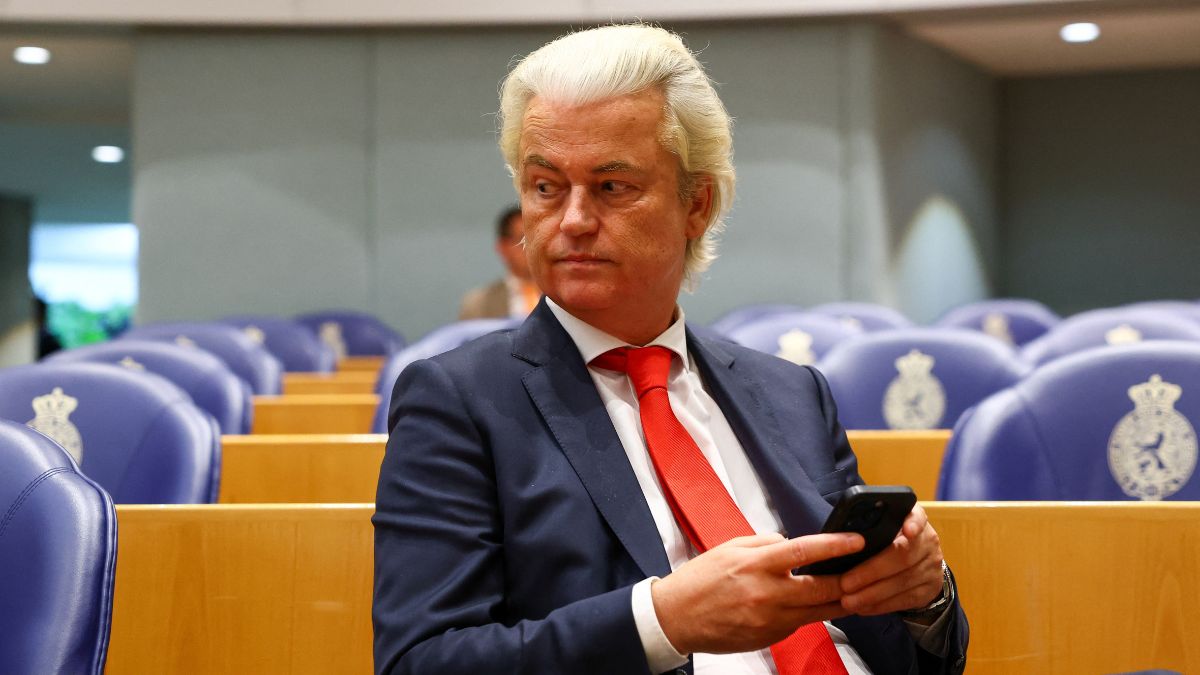Often called the “Dutch Trump” for his striking dyed hair and fiery speeches, Geert Wilders has risen to the edge of power with his anti-Islam, anti-immigration and anti-EU stance.
On Tuesday, he withdrew his PVV party from the ruling coalition in the Netherlands after a disagreement over stricter migration rules. This move is likely to lead to fresh elections.
Wilders’ decision brings an end to a shaky coalition that has struggled to agree on key issues since it was formed last July.
If a snap election is called, it would take place at a time when far-right movements are gaining ground in Europe. Public frustration over migration and living costs is also testing Europe’s unity in handling Russia and US President Donald Trump.
Wilders explained that he pulled out because the other three parties in the coalition did not support his plans on asylum and immigration.
“No signature under our asylum plans. The PVV leaves the coalition,” he said in a post on X.
Despite legal troubles, including a conviction for insulting Moroccans, and ongoing death threats that have kept him under police protection since 2004, he has remained defiant in his views.
He made headlines for comments like calling Moroccans “scum” and for organising cartoon contests of the Prophet Mohammed, framing his career around stopping what he describes as an “Islamic invasion” of the West.
Impact Shorts
More ShortsNow, his latest move has brought down the coalition government he helped create, in what appears to be another attempt to fulfil his long-standing goal of becoming the Dutch prime minister.
After spending many years on the sidelines of Dutch politics, the 61-year-old made a strong comeback in 2023 with a surprise election victory that caught Europe’s attention.
His far-right Freedom Party (PVV) won 37 seats in the 150-member parliament, defeating more established parties like the Green/Left and the liberal VVD.
During the campaign, Wilders softened his tone on immigration. In the final debate before the vote, he even said there were “bigger problems than fighting against the flood of asylum seekers and immigrants”.
He promised to put his anti-Islam statements “in the freezer” in exchange for a chance to move into the “Little Tower”, the nickname for the Dutch prime minister’s office in The Hague.
But who is Geert Wilders? And what do we know about his political path and his views on Islam?
Let’s take a look:
Who is Geert Wilders?
Born in 1963 in southern Venlo, close to the German border, Wilders grew up in a Catholic family with his brother and two sisters.
His mother was half-Indonesian, a fact Wilders rarely mentions.
He developed an interest in politics in the 1980s, his older brother Paul told Der Spiegel magazine.
“He was neither clearly on the left or the right at the time, nor was he xenophobic. But he was fascinated by the political game, the struggle for power and influence,” Paul Wilders said.
His hatred of Islam appeared to have developed slowly. He spent time in Israel on a kibbutz, witnessing first-hand tensions with the Palestinians.
He also voiced shock at the assassinations of far-right leader Pim Fortuyn in 2002 and the radical anti-Islam filmmaker Theo van Gogh in 2004.
When he heard the news of Van Gogh’s murder: “I remember my legs were shaking with shock and indignation,” he wrote in a 2012 book.
“I can honestly say that I felt anger, not fear.”
Wilders entered politics in 1998 in the VVD party. During his early days in politics, he started dyeing his brown hair blonde and learnt his media-savvy ways.
Over the years, he vowed not to be silenced, despite being convicted of insulting Moroccan-Dutch citizens.
In 2006, he quit the VVD to found his own party, and in 2017, it became the second largest in parliament, falling back to the third largest in 2021.
By tapping into a seam of Dutch discontent, Wilders also managed to push the political discourse in the Netherlands to the right.
But Wilders also cut an isolated figure.
He was married to a Hungarian woman but they had no children. When not posting anti-Islamic invective on his one social media account, he posted pictures of their cats on another.
His party consisted of just one person: himself. And his security meant he had little contact with the outside world.
“Geert’s world has become very small,” his brother told Der Spiegel. “It consists of the parliament, public events and his apartment. He can hardly go anywhere else.”
What are his ambitions?
But his coalition partners had other ideas.
The Dutch political system is based on consensus, meaning no one party can dominate, and two of the four party leaders were queasy at the thought of Wilders leading the country.
He reluctantly stepped aside to clinch a coalition deal, writing on X: “The love for my country and voters is bigger and more important than my own position.”
After rollercoaster talks, the four parties agreed on Dick Schoof as a compromise PM, with a mandate to introduce the “strictest-ever” asylum policy seen in the country.
But Wilders’ ambitions were unsated and he frequently voiced his desire to become premier.
He also again ramped up his anti-Islam rhetoric.
“Walk the streets of Western Europe… and you will see that it often looks like a mediaeval Arab city, full of headscarves and burqas,” he alleged in a recent speech.
“Islam is rising but I do not want Islam to rise… for Islam and freedom are incompatible.”
With inputs from AFP


)

)
)
)
)
)
)
)
)



